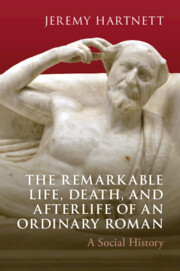3 results

The Remarkable Life, Death, and Afterlife of an Ordinary Roman
- A Social History
-
- Published online:
- 16 December 2024
- Print publication:
- 23 January 2025
5 - Mercenary Diplomacy
- from Part III - Bibliopolitics and Conflict Management
-
- Book:
- Mercenaries of Knowledge
- Published online:
- 14 September 2023
- Print publication:
- 28 September 2023, pp 177-218
-
- Chapter
- Export citation
4 - The Proving Grounds
- from Part II - The Severing: Trial and Exile
-
- Book:
- Mercenaries of Knowledge
- Published online:
- 14 September 2023
- Print publication:
- 28 September 2023, pp 137-174
-
- Chapter
- Export citation

